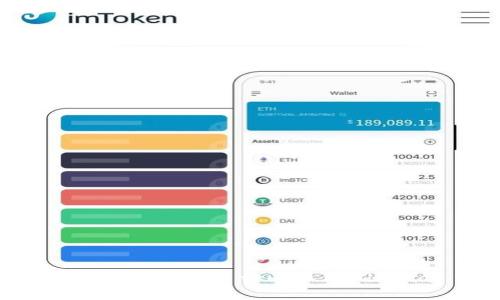区块链担保平台: redefining trust in digital transact
- By token正版下载
- 2025-06-15 15:39:22
区块链担保平台的定义与功能
在数字经济不断发展的背景下,区块链技术因其去中心化、不可篡改的特性逐渐受到关注。与此同时,担保机制作为金融交易的重要组成部分也正经历着巨大的变革。区块链担保平台因此应运而生,成为了一个新兴的金融工具,它通过区块链技术为用户提供安全可靠的交易担保服务。
区块链担保平台的核心理念在于通过智能合约自动化执行担保条款,降低人为干预的可能性,从而提升交易透明度和信用保障。智能合约为用户提供了一种可编程的、自动化的执行机制,可以在达成特定条件时自动释放担保金额,确保交易的安全性与公正性。
区块链担保平台的主要功能包括交易担保、信誉评估和纠纷解决等。用户在进行数字交易时,可以通过担保平台进行资金托管,确保交易一方在履行合约时另一方的资金安全。这一机制有效减少了双方的信用风险,促进了交易的顺利进行。
区块链担保平台的运作模式
区块链担保平台的运作模式主要分为三个步骤:用户注册、担保设定、合约执行。首先,用户需要在平台上进行注册,并提交必要的身份验证信息。注册通过后,用户可以根据其交易需求设定担保交易的相关条款,例如担保金额、交易对象及履约条件。
其次,平台将生成智能合约,该合约记录了交易双方的相关信息及担保条款。在达成约定条件后,智能合约自动执行,例如,交易完成后,担保金额将由平台相应分配,确保每方的权益得到保障。
最后,当交易双方完成约定的服务或交付,平台将确认交易的有效性。如果交易出现纠纷,平台也会根据智能合约的条款进行调查,提供相应的解决方案,保障用户的合法权益。
区块链担保平台的优势
使用区块链担保平台进行交易,有多重优势。首先是安全性,由于区块链的去中心化和加密特性,用户的交易数据和担保记录难以被篡改,提升了整体的安全性,使用户在交易时更加放心。其次,透明性,所有的交易记录都会在区块链上公开,用户可以随时查询交易的历史,确保各方信任的基石得以建立。
另外,自动化和效率也是区块链担保平台的一大亮点。由于智能合约的存在,交易的执行过程减少了中介的参与,降低了交易成本,提高了交易的速度,用户可以在短时间内完成交易,而不必等待传统金融流程中的繁琐手续。此外,用户在平台上的行为和交易记录将会被全面记录,为后续的信用评估提供了依据。
区块链担保平台的应用场景
区块链担保平台的应用场景广泛,涵盖了互联网金融、电子商务及供应链管理等多个领域。在互联网金融方面,区块链担保平台可以为借贷交易提供担保服务,双方通过平台设定贷款合同及担保条款,确保贷方资金安全与借方的信用得到保障。
在电子商务领域,区块链担保平台为消费者与商家的交易提供可信的担保机制。在买卖交易中,消费者可以通过担保平台对商家的信誉进行评估,确保其产品符合质量标准。此外,平台也能为商家提供信用担保,促进信任关系的建立。
在供应链管理中,协作各方可以通过区块链担保平台进行资金托管。例如,原材料供应商可以向制造商提供材料,制造商支付货款前可设置担保,确保支付在供货方履行条件后自动释放,保证了供应链各环节的高效运转。
可能相关的问题
What is a blockchain guarantee platform and how does it operate?
A blockchain guarantee platform serves as a digital tool that ensures the credibility and security of transactions by utilizing blockchain technology. This innovative system defines trust through smart contracts that automatically execute terms of agreements based on predetermined conditions. By examining the fundamental operations of a blockchain guarantee platform, users can better understand how to leverage its capabilities.
The typical operation starts with user registration, where individuals are required to submit personal credentials for identity verification. Once they are verified, they can initiate a guarantee transaction by specifying the terms such as the guarantee amount, transaction parties, and the fulfillment conditions. The system then generates a smart contract that encapsulates all these details in a secure manner.
Throughout the transaction lifecycle, the smart contract remains active, ensuring compliance from both parties. Should the terms be met, the contract autonomously frees up the funds or handles the transactions regarding collateral. In the event of a dispute, the platform is also required to intervene, relying on the smart contract's embedded rules to solve any issues.
What are the benefits of using a blockchain guarantee platform?

The use of a blockchain guarantee platform confers numerous benefits that redefine user experiences in transactions. One of the essential advantages is the intrinsic security that blockchain technology offers. Transactions are encrypted, and the decentralized nature of blockchain means that once data is recorded, it becomes practically immutable, creating a secure environment for both transaction parties.
Moreover, transparency is another critical benefit. Every transaction is timestamped and recorded on the blockchain, allowing users to verify the history of transactions at any point in time. This level of transparency is crucial in building trust between parties, enhancing user confidence in their transactions.
Automation also plays a significant role in operational efficiency. Transactions on a blockchain guarantee platform significantly reduce the need for intermediaries, which in turn lowers costs and accelerates transaction speeds. The implementation of smart contracts enables real-time processing, wherein transactions can be concluded swiftly, bypassing the traditional bottlenecks that slow down financial dealings.
What types of transactions can be secured by a blockchain guarantee platform?
The versatility of a blockchain guarantee platform allows for a wide range of transactions to be secured. In the realm of peer-to-peer lending, for example, individuals seeking loans can leverage blockchain guarantees to ensure that lenders are compensated upon fulfilling the terms outlined in their agreements. This minimizes the risks of default, making both parties more willing to engage in the transaction.
The e-commerce sector also stands to gain significantly from blockchain guarantee platforms. Consumers can secure their purchases by employing platforms to authenticate vendor reputations while vendors can ensure payment upon successful delivery or service fulfillment. This leads to an efficient marketplace where trust is implicitly built into transactions, ultimately enhancing customer satisfaction and loyalty.
Additionally, the platform can also facilitate transactions within supply chains. The fluidity with which a guarantee can execute payment once specified goods or services are confirmed allows businesses to streamline operations, optimize cash flow, and manage supplier relationships more effectively.
How can blockchain guarantee platforms influence traditional finance sectors?

Blockchain guarantee platforms have the potential to shape the contours of traditional finance significantly. By introducing a more efficient, trustworthy, and transparent way of executing guarantees, these platforms can alter the landscape of how financial institutions operate. One significant influence is in reducing transaction costs, as blockchain technology minimizes the need for multiple intermediaries that currently facilitate banking services.
Additionally, the inherent transparency of blockchain can change regulations in how financial transactions are monitored, potentially reducing the prevalence of fraud and enhancing compliance. With all transactions being recorded and auditable, financial audits could be simplified, reducing resource and time consumption for banks and regulators alike.
Also, as more users gravitate towards blockchain technologies, traditional financial institutions may feel pressured to adopt similar systems to maintain competitiveness. This shift could lead to a broader acceptance of decentralized finance (DeFi) practices among the mainstream, ultimately influencing how financial services are delivered globally.



